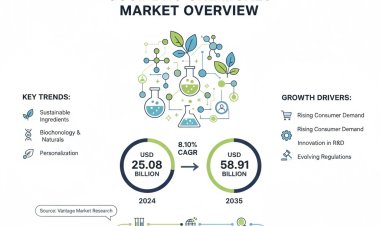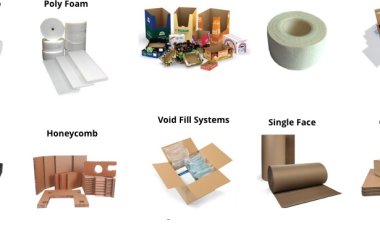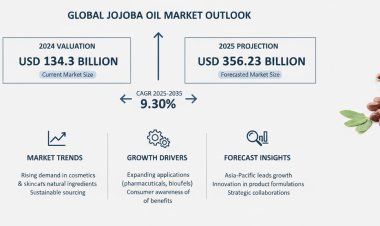Global Healthcare Facilities Management Market Size to Reach $11 Billion at a CAGR of 6.9% by 2030
Vantage Market Research expects the Healthcare Facilities Management Market to reach USD 11 Billion by 2030, exhibiting a growth rate (CAGR) of 6.9% during 2023-2030.

The Global Healthcare Facilities Management Market size reached USD 6.5 Billion in 2022. Vantage Market Research expects the market to reach USD 11 Billion by 2030, exhibiting a growth rate (CAGR) of 6.9% during 2023-2030.
Table of Content [TOC]
|
Introduction |
|
· The Significance of Healthcare Facilities Management |
|
1. Infrastructure Maintenance: Keeping Healthcare Facilities Functional |
|
· The Role of Regular Inspections and Maintenance |
|
· Ensuring HVAC, Electrical, Plumbing, and Structural Integrity |
|
· Creating a Comfortable Environment for Patients and Staff |
|
2. Asset Management: Maximizing Equipment Efficiency and Longevity |
|
· Inventory Management for Medical Devices, Diagnostic Tools, and IT Systems |
|
· Maintenance Scheduling to Minimize Downtime and Repair Costs |
|
· Replacement Planning to Adapt to Technological Advancements |
|
3. Patient Safety: Minimizing Risks and Enhancing Care Quality |
|
· Infection Control Strategies to Prevent Healthcare-Associated Infections |
|
· Fire Safety Measures and Emergency Response Plans |
|
· Environmental Hazard Identification and Mitigation |
|
4. Regulatory Compliance: Navigating Complex Healthcare Standards |
|
· Adhering to Guidelines from CMS, OSHA, and Other Regulatory Agencies |
|
· Addressing Compliance Challenges Through Robust Documentation and Monitoring |
|
· Maintaining Patient and Staff Safety in Compliance with Regulations |
|
5. Sustainability: Creating Efficient and Environmentally Friendly Facilities |
|
· Reducing Energy Consumption and Waste Generation |
|
· Implementing Energy-Efficient Technologies and Waste Reduction Programs |
|
· Enhancing Public Perception and Patient Recovery Through Sustainable Practices |
|
6. Technological Advancements: Leveraging Innovation for Better Health |
|
· Embracing Smart Building Solutions for Streamlined Operations |
|
· Utilizing IoT (Internet of Things) and AI (Artificial Intelligence) Systems |
|
· Enhancing Patient Experience and Predictive Maintenance with Emerging Technologies |
|
Conclusion |
|
· The Importance of Healthcare Facilities Management in Ensuring Quality Care |
|
· Best Practices for Efficient, Safe, and Sustainable Healthcare Facilities |
|
· The Future of Healthcare Facilities Management in a Technology-Driven Landscape |
Introduction
Healthcare Facilities Management is pivotal in ensuring efficient and effective operations in healthcare organizations. This field encompasses a broad range of responsibilities from maintaining physical structures and equipment to ensuring patient safety and compliance with regulations. In this blog, we will explore the various aspects of Healthcare Facilities Management, covering infrastructure maintenance, asset management, patient safety, sustainability, and technological advancements.
Request Sample Report of Healthcare Facilities Management Market @ https://www.vantagemarketresearch.com/healthcare-facilities-management-market-2265/request-sample
Top Companies in Global Healthcare Facilities Management Market
- 3M Company (U.S.)
- CBRE Group Inc. (U.S.)
- Johnson Controls (U.S.)
- Accruent (U.S.)
- Jones Lang LaSalle Inc. (U.S.)
- ABM Industries Inc. (U.S.)
- Medxcel (U.S.)
- Sodexo (France)
- Armark Corp. (U.S.)
- Infrastructure Maintenance: Keeping Healthcare Facilities Functional
Maintenance of healthcare infrastructure is essential for ensuring smooth operations. This unit discusses the importance of regular inspections, repairs, and upgrades in Heating, Ventilation, and Air Conditioning (HVAC) systems, electrical grids, plumbing, and structural integrity. Efficient infrastructure maintenance ensures that healthcare facilities can provide uninterrupted services and a comfortable environment for patients, their families, and healthcare professionals.
- Asset Management: Maximizing Equipment Efficiency and Longevity
Effective asset management in healthcare facilities ensures that equipment such as medical devices, diagnostic tools, and IT systems operate optimally. This section will explore strategies for inventory management, maintenance scheduling, and replacement planning. Proactive asset management reduces downtime and repair costs and allows facilities to adapt to technological advancements, enhancing patient care outcomes.
- Patient Safety: Minimizing Risks and Enhancing Care Quality
In healthcare, patient safety should always be a top priority. Facilities management is critical in identifying and mitigating potential risks, such as infection control, fire safety, and environmental hazards. This section will outline key strategies facilities management teams employ to maintain a safe environment for patients and healthcare staff, including emergency response planning, regular safety inspections, and staff training programs.
- Regulatory Compliance: Navigating Complex Healthcare Standards
Healthcare facilities must adhere to numerous regulations and standards to ensure quality care. Facilities management professionals are vital in ensuring compliance with guidelines from agencies like the Centers for Medicare and Medicaid Services (CMS) and the Occupational Safety and Health Administration (OSHA). This section will outline the key regulations, compliance challenges, and the importance of robust documentation and monitoring systems to meet regulatory requirements.
- Sustainability: Creating Efficient and Environmentally Friendly Facilities
The healthcare sector increasingly prioritizes sustainability initiatives to reduce energy consumption, waste generation, and carbon footprint. Facilities managers contribute to sustainability by implementing energy-efficient technologies, waste reduction programs, and environmentally friendly practices. This section will discuss the benefits of embracing sustainability in healthcare facilities, including cost savings, improved public perception, and positive impacts on patient recovery.
Buy Now Our Healthcare Facilities Management Industry Report @ https://www.vantagemarketresearch.com/buy-now/healthcare-facilities-management-market-2265/0
- Technological Advancements: Leveraging Innovation for Better Health
With the rapid advancement of technology, facilities management is embracing smart building solutions, IoT (Internet of Things), and AI (Artificial Intelligence) systems to enhance operations. This section will explore how these emerging technologies can streamline facility management processes, improve patient experience, and enable predictive maintenance for critical equipment. Examples may include automated inventory systems or real-time monitoring of utility consumption to optimize resource management.
Conclusion
Healthcare Facilities Management encompasses various essential aspects that contribute to healthcare organizations' smooth functioning, safety, and sustainability. This field is vital in providing efficient and effective healthcare services, from infrastructure maintenance to patient safety, regulatory compliance, sustainability, and leveraging technological advancements. Embracing best practices in Healthcare Facilities Management ensures that patients receive high-quality care within safe and well-maintained environments.
Read Our Latest Press Release: Health Information Exchange Market - In-depth Analysis
Contact us
Eric Kunz
6218 Georgia Avenue NW Ste 1 - 564
Washington DC 20011-5125
United States Tel: +1 202 380 9727
Email: [email protected]
Website: Vantage Market Research


















